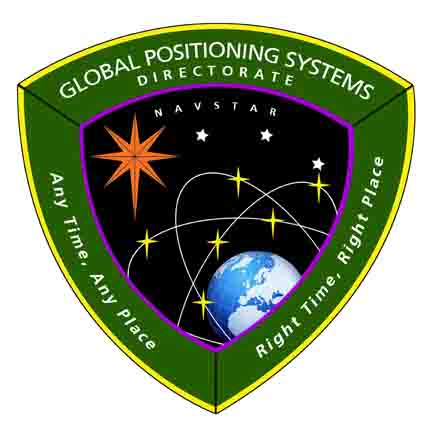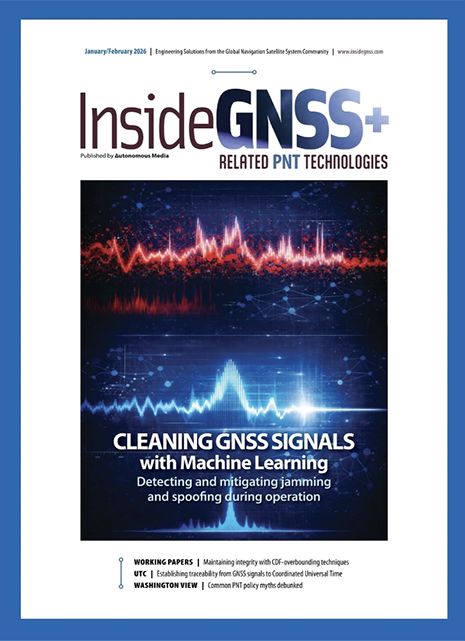The U.S. military is moving toward using the signals of other satellite navigation constellations to help ensure access to positioning and timing information and to potentially thwart spoofing.
The impending shift came to light in remarks made by Air Force Chief of Staff Gen. Mark Welsh III during a talk last week (April 23, 2014) at the National Press Club.
The U.S. military is moving toward using the signals of other satellite navigation constellations to help ensure access to positioning and timing information and to potentially thwart spoofing.
The impending shift came to light in remarks made by Air Force Chief of Staff Gen. Mark Welsh III during a talk last week (April 23, 2014) at the National Press Club.
When asked what the Air Force’s backup plan would be if it lost access to the GPS constellation, Welsh said the U.S. military was “looking at partnerships with other nations who also have navigation-type systems.”
“We have to be able to navigate precisely,” Welsh said, “to set timing precisely to operate the way we are operating as the U.S. military around the world.”
To ensure this, he added, “We also are looking at technology in the future that uses different ways of precision navigation, at things that we think would be useful whether the GPS system signal is denied or the system is compromised or whether we can’t develop a coalition or allied partnerships that allow us to use their systems everywhere in the world if we don’t have immediate access [to GPS] — so, lots of effort is going on in this regard.”
The shift to a multi-constellation approach was already in the works, said a source with insight into the Pentagon’s plans.
“It’s going to happen,” confirmed the source to Inside GNSS. “There is going to be a new policy letter that’s coming out . . . that gives, with the exception of critical safety of life things, gives the services the opportunity to use any signals that they feel they can verify as useful.”
To help enhance the multi-constellation strategy work, a push has been under way to ensure distribution to military users of signal monitoring information gathered by the Global Differential GPS (GDGPS) network, said the source. The network, which was developed by NASA’s Jet Propulsion Laboratory, has more than 100 U.S. and international monitoring stations with the 75 sites of NASA’s GPS Network at its core.
GDGPS is already feeding data on a variety of signals to a host of users, including the GPS command and control team at the 2nd Space Operations Squadron (2SOPS) at Schriever Air Force Base, Colorado. In the case of GPS, at least 10 GDGPS stations, and on average 25, are monitoring every GPS satellite at all times. The network can also monitor other constellations and has a level of redundancy that enables results to be provided on a regional basis.
“The [civil community is] going to broadcast [GDGPS data] to all the [civil users] for their use,” said the source.
Although the GPS signal will still be the first choice on military receivers, broadcasting the GDGPS data will make it possible to know which other signals are useable in a particular area if the GPS signal is denied. Moreover, said the source, “if I’ve got access to two or three of the other [signals] I have the capability on board the receiver to pick out the best ones — so this whole business of spoofing goes away. “
Authority to make the change already appears to be in place, according to information provided in response to a query about Welsh’s comments.
“As outlined in the National Space Policy,” said Air Force Space Command spokesperson Capt. Connie Dillon, “the United States shall engage with foreign Global Navigation Satellite Systems (GNSS) providers to encourage compatibility and interoperability and promote transparency in civil service provision.” The policy further states that the U.S will work with its foreign partners, among others, to “enhance capabilities and techniques.”
Cooperation does not mean that the United States will be willing to share military chipsets with manufacturers of military equipment in other countries, said Dillon. “Instead, we will work with foreign GNSS providers to ensure that there is interoperability and compatibility of our radio frequencies and signals worldwide.”
A couple of years ago, however, the United States and European officials did begin informal discussions about how U.S. agencies might use the secure signal planned for Galileo — the Public Regulated Service, or PRS — to better fulfill their various responsibilities.
A multi-pronged approach to assuring positioning and timing data is the key to making sure that American military personnel have the information they need, said Welsh.
“I’m pretty confident about precision navigation of the future,” the general told the Press Club audience, “but we have to have a varied menu of things to choose from if we want to guarantee the ability to use it, and we have become reliant on it.”






